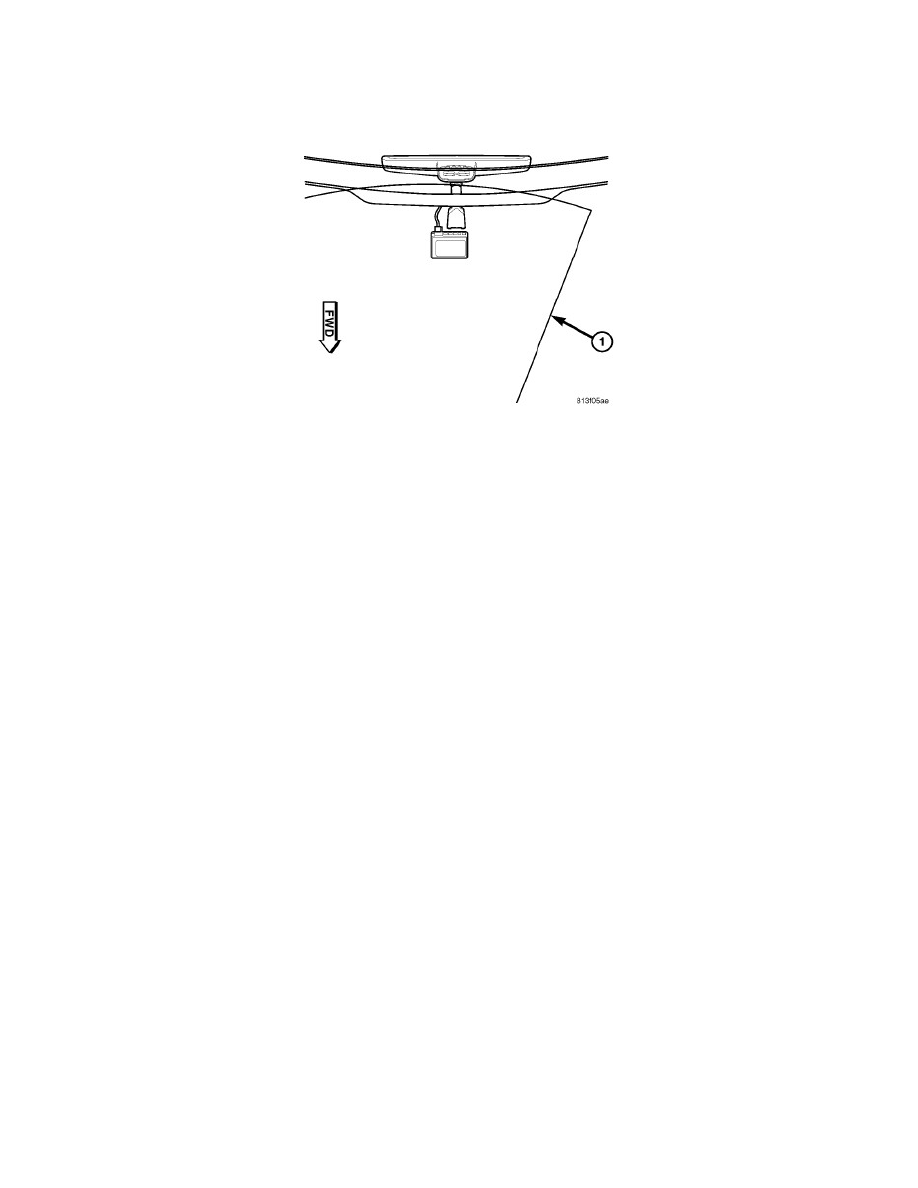Charger V6-3.5L (2009)

Rain Sensor: Description and Operation
Rain Sensor - Operation
OPERATION
The microprocessor-based Rain Sensor senses moisture in the wipe pattern (1) on the outside of the windshield glass and sends wipe commands to the
Totally Integrated Power Module/Front Control Module (TIPM/FCM). Four Infrared diodes within the sensor generate infrared light beams that are
aimed by four of the convex optical lenses near the base of the sensor through the windshield glass. Four additional convex optical lenses near the top of
the sensor are focused on the infrared light beams on the outside of the windshield glass and allow the four photocells within the sensor to sense changes
in the intensity of these infrared light beams. When sufficient moisture accumulates within the wipe pattern (1) of the windshield glass, the sensor detects
a change in the monitored infrared light beam intensity.
The internal programming of the sensor then sends the appropriate electronic wipe command messages to the TIPM/FCM over the Controller Area
Network (CAN) data bus. The TIPM/FCM responds by activating or deactivating the front wiper system. The CCN sends electronic sensitivity level
messages to the rain sensor over the CAN data bus based upon the driver-selected sensitivity setting of the control knob on the control stalk of the
multi-function switch. The higher the selected sensitivity setting the more sensitive the rain sensor is to the accumulated moisture on the windshield
glass, and the more frequently the sensor will send wipe commands to the TIPM/FCM to operate the front wiper system.
The rain sensor operates on battery current received through a fuse in the Power Distribution Center (PDC) on a fused B+ circuit. The rain sensor
receives ground at all times through the body wire harness. It is important to note that the default condition of the automatic wiper system is low.
Therefore, if no message is received by the TIPM/FCM from the rain sensor for more than about five seconds when in the Auto sensitivity wipe mode,
the wipers will default to a constant low wipe state.
The rain sensor ground and battery current inputs may be diagnosed using conventional diagnostic tools and methods. The most reliable, efficient, and
accurate means to diagnose the rain sensor requires the use of a scan tool and the appropriate diagnostic information.
